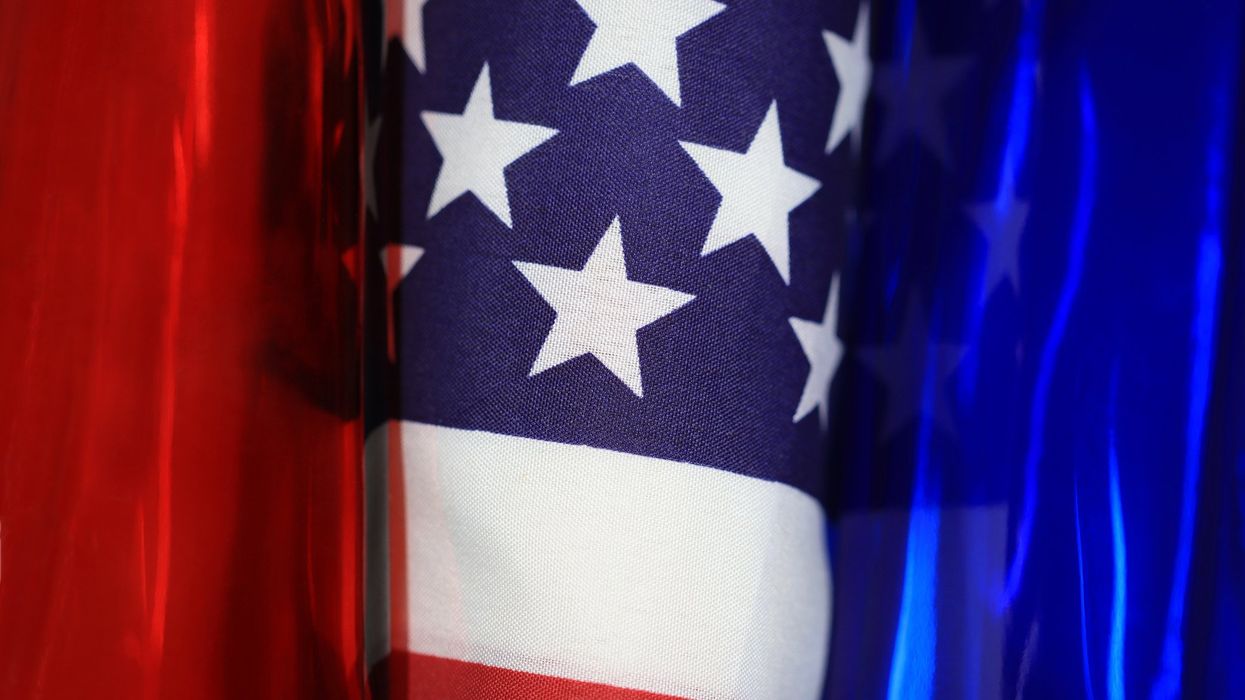Despite the division in our politics, Americans across the aisle agree on two essential issues: there’s a problem with the role of money in politics (the public’s #1 concern), and there is too little cooperation between our leaders in solving the nation’s problems (the #5 concern). These two issues erode trust in our institutions and the integrity of our elections, and leave communities and voters across the country feeling sidelined.
That’s why we, two state legislators from opposite sides of the aisle, have come together. Unchecked political spending and partisan gridlock hurt government where it is intended to be most accessible: in our local communities.
Consider Wyoming. In 1870, Louisa Swain of Laramie cast her vote in a local election half a century before the 19th Amendment gave women the right to vote nationally. Wyoming’s early commitment to civic participation was crucial in keeping local and state government closely tethered to its people.
But today, that connection between government and the people it’s meant to serve is under siege, not just in Wyoming but nationwide. The overwhelming influx of out-of-state money into local and state elections silences the voices of everyday citizens. In the 2024 election cycle, A projected $4.6 billion was spent on state elections for candidates and ballot measures, surpassing previous records.
This has a corrosive impact. Voters feel powerless, and our jobs as elected representatives are becoming increasingly challenging. Public servants face mounting pressure to appease national donors rather than their constituents. Campaigns that once focused on community priorities are now battlegrounds for national special interests, injecting divisive rhetoric and millions of dollars of dark money into races that were once decided around kitchen tables and in town halls.
This nationalization of local elections is no longer the exception—it’s the rule. Just look at Wisconsin, where more than $100 million flooded this year’s state Supreme Court race. Billionaires and Washington D.C. power players weren’t investing because they cared about the judicial needs of Wisconsin residents. They were using the race as a political proxy war, a trend currently playing out in statehouses, school board contests, and mayoral elections across the country.
It wasn’t always this way. For most of our nation’s history, states have had the authority to set reasonable limits on campaign finance to protect the integrity of their elections. However, a series of Supreme Court decisions ruled that political spending constitutes a form of protected speech under the First Amendment, thereby stripping states of the ability to protect their elections from outside influence.
Those Supreme Court cases were, and still are, wrong. They not only elevated the voices of the wealthiest donors over the average voter but also violated the long-standing principle of states’ rights to limit political spending. This has resulted in the nationalization of our elections, which has stifled discussion on the issues that impact citizens at both the local and state levels.
The path forward is clear: we need a constitutional amendment that restores states’ and local communities’ authority to set their own rules on money in politics. Amending the Constitution is the only way to reverse Supreme Court decisions, and has been the instrument commonly used throughout American history to strengthen the will of the people at the ballot box. If the damage is being done at the state level, then it’s the states that must lead the way toward a solution.
Twenty-three states, from Utah and Nevada to West Virginia and New Hampshire, have already passed resolutions in support of this amendment. Six states—including our state of Wyoming—introduced resolutions supporting a constitutional amendment just this year. Polls show that more than three-quarters of Americans support returning this power to the people. Bipartisan momentum to address this issue is growing.
As lawmakers from different parties, we don’t agree on everything. But we do agree on this: government works best when it elevates the voices of citizens, not special interests. When it invites cooperation, not conflict. And when it allows communities—not billionaires or out-of-state operatives—to shape the future of our towns and our states. That vision isn’t new; it’s rooted in our founding. As the late U.S. Senator Alan Simpson wisely explained: “We need to get back to basics with our Constitution and our political system. As a nation, we cannot accept the law of aristocracy, where the political rights of people are based on their wealth.”
This movement to amend the Constitution gets us back to the basics. It returns power to the states and the people, ensuring our government is accessible, responsive, and focused on the issues that voters actually care about.
Andrew Byron is a Republican state representative in Wyoming.
Mike Gierau is a Democratic state senator from Wyoming.



















